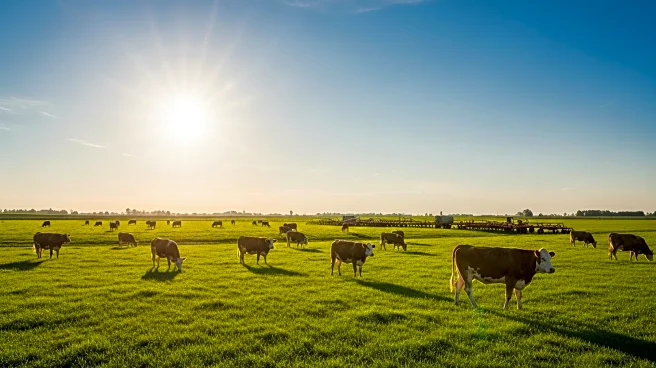What is the story about?
What's Happening?
McDonald's has announced a significant investment of $200 million over the next seven years to support regenerative agriculture practices on cattle ranches across the United States. This initiative marks the company's largest investment in regenerative agriculture within the U.S. The goal is to enhance soil health, conserve water, and reduce reliance on synthetic chemicals and fertilizers. McDonald's aims to implement these practices on ranches covering 4 million acres in up to 38 states. The company is collaborating with the National Fish and Wildlife Foundation, which will distribute competitive grants to organizations aiding ranchers in adopting these practices. McDonald's suppliers, including Cargill, Golden State Foods, and Coca-Cola, are also contributing to the funding.
Why It's Important?
The investment by McDonald's underscores a growing trend among major corporations to adopt sustainable farming practices. Regenerative agriculture has the potential to improve soil health, increase biodiversity, and enhance carbon sequestration, which can mitigate climate change impacts. By promoting these practices, McDonald's is taking steps to ensure the long-term sustainability of its supply chain, which could lead to increased profitability for ranchers and improved productivity of grasslands. This move may also influence other companies to invest in similar initiatives, potentially leading to widespread adoption of regenerative practices in the agricultural sector.
What's Next?
The National Fish and Wildlife Foundation is expected to announce the first round of grant awards in January, which will kickstart the implementation of regenerative practices on participating ranches. As these practices are adopted, stakeholders will likely monitor their impact on soil health, water conservation, and ranch profitability. The success of this initiative could prompt further investments from McDonald's and other companies in regenerative agriculture, potentially expanding the scope of sustainable farming practices across the industry.
















